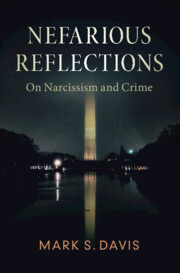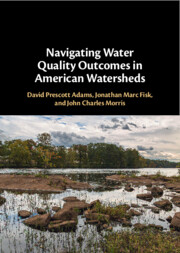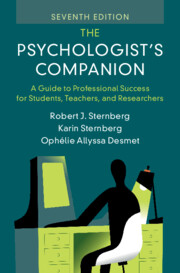Refine search
Actions for selected content:
3410549 results
Reading Keats's Letters
- An Epistolary Poetics
- Coming soon
-
- Expected online publication date:
- June 2026
- Print publication:
- 30 June 2026
-
- Book
- Export citation
Family Law
- Coming soon
-
- Expected online publication date:
- June 2026
- Print publication:
- 30 June 2026
-
- Textbook
- Export citation

Studying Public Policy
- Connecting Theory to Practice
- Coming soon
-
- Expected online publication date:
- June 2026
- Print publication:
- 31 July 2026
-
- Textbook
- Export citation

Nefarious Reflections
- On Narcissism and Crime
- Coming soon
-
- Expected online publication date:
- June 2026
- Print publication:
- 30 June 2026
-
- Book
- Export citation

Navigating Water Quality Outcomes in American Watersheds
- Coming soon
-
- Expected online publication date:
- June 2026
- Print publication:
- 30 June 2026
-
- Book
- Export citation

Teaching Strategies in the 21st Century
- Where to Now?
- Coming soon
-
- Expected online publication date:
- June 2026
- Print publication:
- 30 June 2026
-
- Textbook
- Export citation

After Hype
- The Business of Taming the Digital Economy
- Coming soon
-
- Expected online publication date:
- June 2026
- Print publication:
- 30 June 2026
-
- Book
- Export citation

Truth Commissions and International Law
- Jurisdiction, Representation, Authority
- Coming soon
-
- Expected online publication date:
- June 2026
- Print publication:
- 31 May 2026
-
- Book
- Export citation
States Under Stress
- Explaining Resilience in the Middle East
- Coming soon
-
- Expected online publication date:
- June 2026
- Print publication:
- 30 June 2026
-
- Book
- Export citation

The Psychologist's Companion
- A Guide to Professional Success for Students, Teachers, and Researchers
- Coming soon
-
- Expected online publication date:
- June 2026
- Print publication:
- 31 March 2026
-
- Book
- Export citation
Appropriation and Religion in the Greek and Roman Worlds
- Coming soon
-
- Expected online publication date:
- June 2026
- Print publication:
- 30 June 2026
-
- Book
- Export citation
Seismic Imaging and Inversion
- Application of Direct Nonlinear Inverse Theory
- Coming soon
-
- Expected online publication date:
- June 2026
- Print publication:
- 30 June 2026
-
- Book
- Export citation

Denial, Deterrence, and Disenchantment
- Why Many Never Immigrate
- Coming soon
-
- Expected online publication date:
- June 2026
- Print publication:
- 30 June 2026
-
- Book
- Export citation
Fashioning Futures
- Uncertainty and Young Women's Livelihoods in Urban Nigeria
- Coming soon
-
- Expected online publication date:
- June 2026
- Print publication:
- 31 May 2026
-
- Book
- Export citation
China's ‘Everything Online' Company
- The Unique Innovation Model of Tencent
- Coming soon
-
- Expected online publication date:
- June 2026
- Print publication:
- 30 June 2026
-
- Book
- Export citation

Lump in My Throat
- What Cancer Taught Me about Communication
- Coming soon
-
- Expected online publication date:
- June 2026
- Print publication:
- 11 June 2026
-
- Book
- Export citation

Speaking Freedom
- The Tunisian Public Sphere between Revolution and Democracy
- Coming soon
-
- Expected online publication date:
- June 2026
- Print publication:
- 30 June 2026
-
- Book
- Export citation
Qualitative Causal Inference and Explanation
- Coming soon
-
- Expected online publication date:
- June 2026
- Print publication:
- 30 June 2026
-
- Book
- Export citation
Genres of Teaching
- Coming soon
-
- Expected online publication date:
- June 2026
- Print publication:
- 30 June 2026
-
- Book
- Export citation
The Psychology of Hunger and Starvation
- Coming soon
-
- Expected online publication date:
- June 2026
- Print publication:
- 30 June 2026
-
- Book
- Export citation
